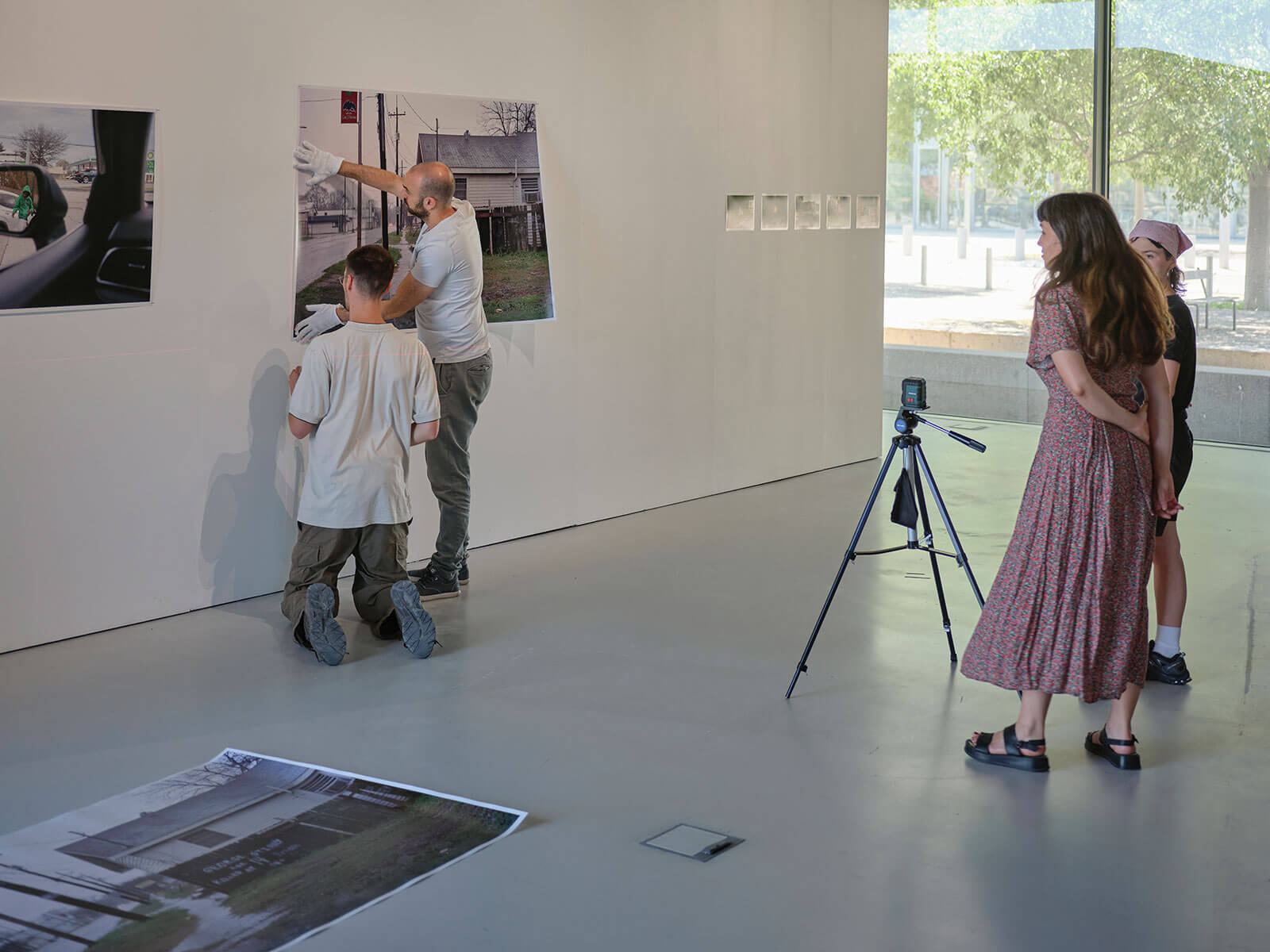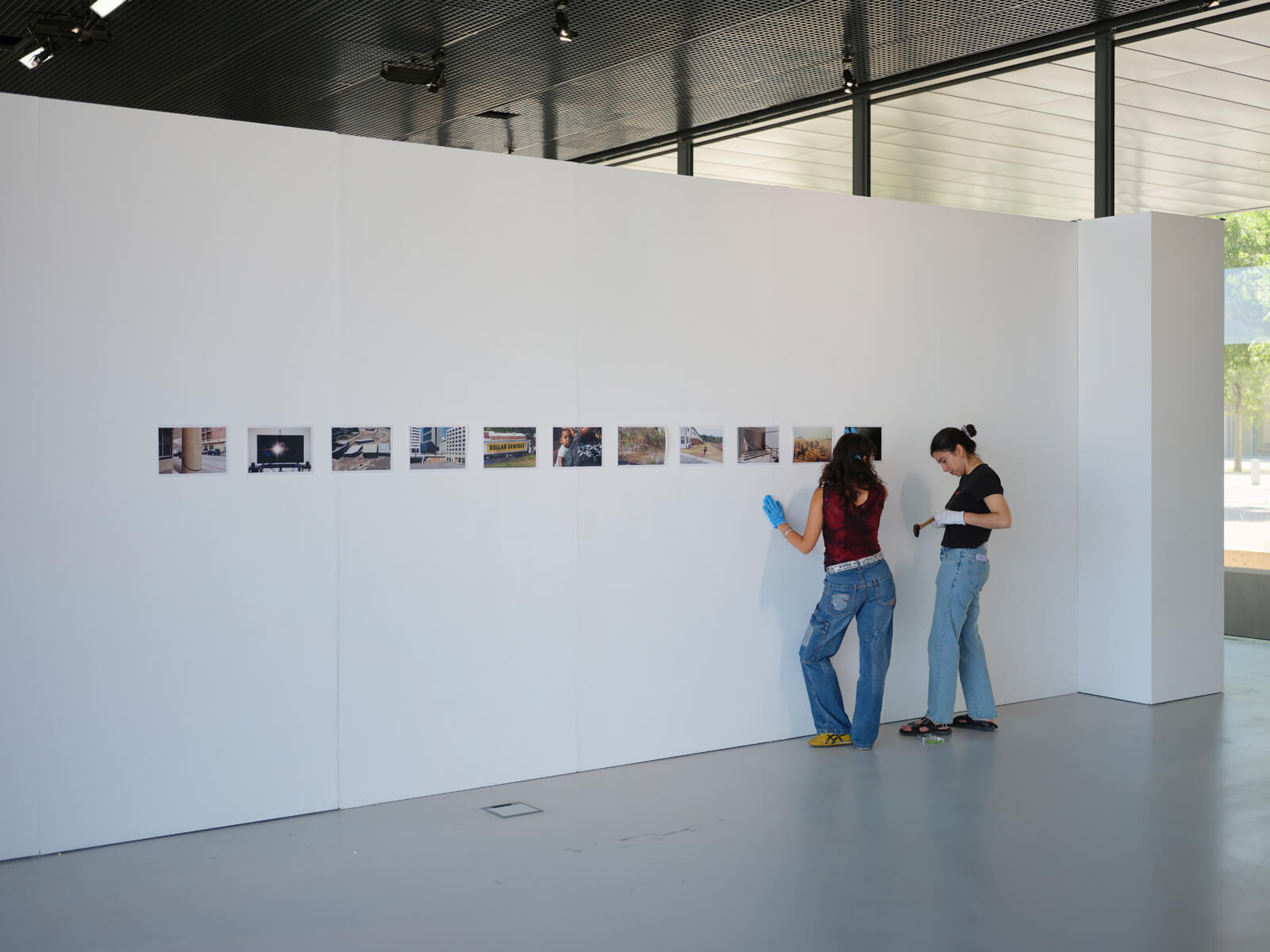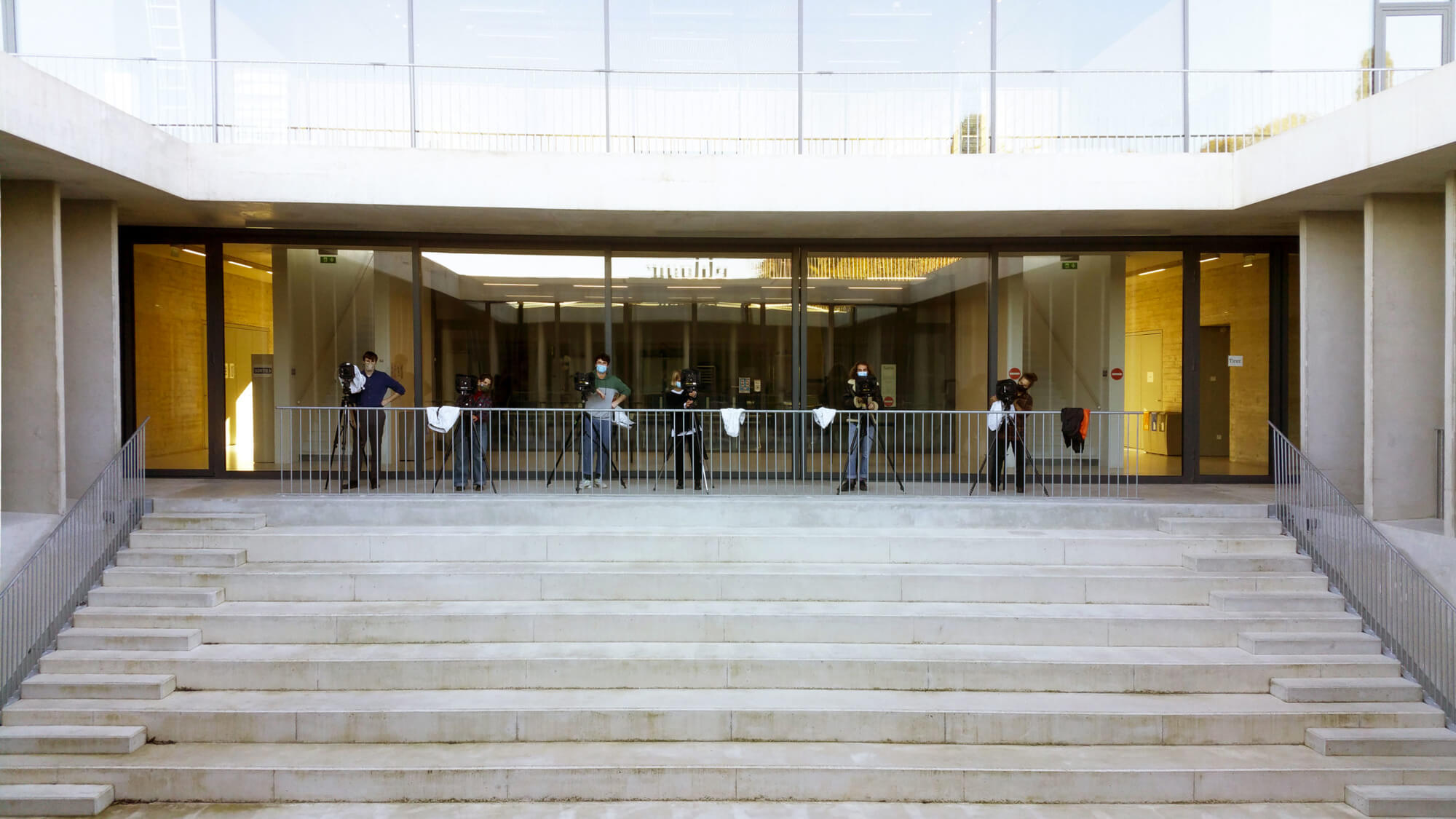Master’s Course
The École nationale supérieure de la photographie diploma, a Master’s degree level award, offers three years of study combining solid theoretical knowledge and in-depth technical training in image-based media and contemporary theoretical debates.
It prepares young artists or researchers to start their working life in professions including artist-photographer, video artist, retoucher or image technician, as well as the possibility to move into the fields of exhibition management and publishing.
The Masters degree is open from Bac + 2 level (or equivalent), by entrance examination.
The age limit for applications is 30 years.
Once they have passed the entrance exams, students are not formally enrolled in the school until they have paid the first year’s annual tuition fees (set by decree by the Ministry of Culture, for example: 451 euros for 2024/2025, and 103 euros for CVEC).
On finishing their Master’s degree, graduates are supported by the ENSP for the first three years of their professional life, in particular through continued access to school facilities. A dedicated website offers an overview of their work and their ongoing activities : alumni.ensp-arles.fr
The teaching programme is built around three areas of focus:
→ Technical training providing each student with a knowledge of the equipment and procedures allowing them to master the medium with which they are working. Photography workshops in film and digital, black & white and colour, computer graphics and audiovisual workshops are areas in which this training is provided.
→ Critical seminars, research and production workshops, conferences, lectures, and exchanges with artists and professionals.
→ Complementary theoretical and practical knowledge classes in human sciences, applied sciences, visual culture, graphic design, multimedia, legal and professional guidance, English language, etc. allowing students to continue beyond their Master’s degree in either specialised vocational training or research, or to enter professional life as a visual arts practitioner or in areas related to the fixed or continuous image.
The course takes place over three years, from October to June.
As a European higher education institution, the ENSP follows the ECTS grading system. (see Livret de l’étudiant.e – French text only)
→ The first year is dedicated to an intensive introduction to the techniques necessary for mastering image production. It includes practical and theoretical lessons in the history of photography and video and their relationship to the history of art, aesthetic theory and the practice of a second language. Critical seminars follow the first steps of the students’ personal projects and conferences with photographers, artists or invited theorists offer an insight into a wide variety of experiences, approaches and practices.
The schedule for this first year is particularly intense with full-time classes. Students are expected to commit to full attendance on the course.
→ In the second year theoretical disciplines continue to be taught in a wide variety of forms. Each student develops their personal work through research and practical workshops, further defining the emerging outlines of this work whilst learning to clarify, contextualise and present it. Technical workshops become optional, allowing students to deepen their first-year technical skills according to their needs. The year is completed by a compulsory internship of one to two months in a professional context.
→ The third year places the personal work of each student at the centre of their learning through exhibition practice. Individual sessions with members of the teaching team and ongoing exchanges with external speakers in preparation for the final diploma examination continue through the year. The formalisation of research through the dissertation is another of the challenges of this year.
In parallel, a cycle of conferences and workshops with image professionals prepares students for their professional life and the promotion of their work. Conferences, study days and colloquia throughout the year give students access to a wide variety of theoretical insights and artistic approaches.
The ENSP entrance examination has been held on-line since 2020 and operates in accordance with principles of equal access for all candidates.
Candidates eligible to register for the entrance exam must:
→ be able to demonstrate at least two years of higher education validated by a title or diploma (or recognized equivalence)
or
→ be in possession of a certificate of fine arts studies, confirming at least two years of study at a higher educational institute for art
Applicants who do not meet one of these two conditions may submit their registration accompanied by a written request justifying their motivation and requesting consideration of their prior experience in support of their application. This will be examined by a special commission.
Students unable to provide documentation to support their two years completed in a higher education establishment at the time of application must provide certificates at the time of their registration, if selected, in order to not lose their place.
Teaching is provided in French. It is therefore essential that non-native French speaking candidates have a good command of the language, both orally and in written work.
A B2 level in French is recommended in order to successfully complete the course.
Candidates must be under 30 years of age on January 1 of the year in which they are applying. Candidates can only sit the entrance examination twice (written and oral examination).
In 2025, in order to promote equal opportunities and access to the ENSP, the entrance examination will take place in two main stages, the first of which will be strictly anonymous.
→ Preselection based on artistic portfolio
All elements of the portfolio will be considered anonymously by the internal jury.
→ Entrance examination
The written test is conducted under conditions of anonymity.
The oral interview allows a personalized assessment of the candidate’s critical thinking and knowledge.
Registration fees for the academic year 2025-26
Only candidates who have paid the registration fees for the entrance examination will be able to take the written and oral tests.
→ Registration fees for the entrance exam: 37€
→ Means-tested grant holding candidates are exempt from registration fees
Preparing for the entrance tests
The entrance examination calls for knowledge of photographic, video and cinema history, practice and current affairs. The candidate will also be asked about his / her general knowledge (history of art, literature, music, etc.), his / her visits to places (galeries, museums etc) presenting contemporary creation and his / her interest in world events. The candidate’s commitment to study and practice will also be assessed over the course of the various tests.
In 2025, the written test will change. It will be a questionnaire based on your knowledge of general culture: it may include questions on current artistic events, a personal analysis of a work of art or an exhibition, and your interests and motivations.
At the ENSP images, whether fixed or in motion, are considered from a range of points of view. Some of the publications which illustrate different approaches to the image are in the attached bibliography which we recommend you download.
Strictly speaking, there is no specific preparatory course for study at the ENSP, but attending an art school or certain university departments (art history, visual arts, literature, philosophy, human sciences, etc.) constitutes a good foundation. The candidate must however be prepared to take on his / her preparation for the entrance tests in an independent manner.
→ Application is available until 26 of February 2025 thanks to the button “Apply”, on top of this page




